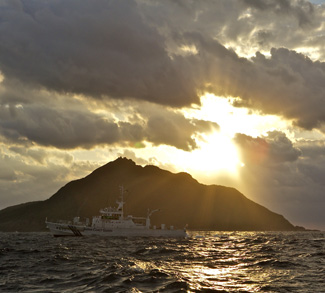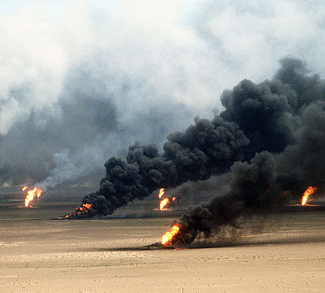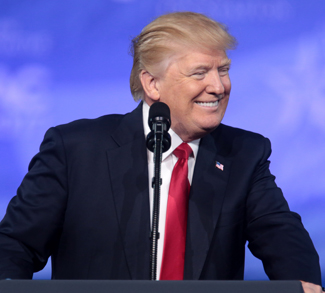There were so many controversial statements made by Donald Trump during the US presidential race, which made many underestimate Trump’s chances of victory. One of these controversial statements came during an exclusive interview with the New York Times on March 20, 2016. Trump said if he were elected US president, he would be open to Japan and South Korea producing their own nuclear deterrents, and that they should not always be depending on the US military to protect them from North Korea and China. The US military would not be able to protect Japan and South Korea for a long period of time. He argued that the United States cannot always be the policemen of the world.
Trump also asserted that there will be a point when the U.S. would not be able to do all that anymore. North Korea probably has their own nuclear arsenal, so he would rather have Japan and South Korea have a nuclear capability too, as we are living in a nuclear world right now.
This controversial statement alarmed the world and received a strong reaction from various sides. President Obama, during the sidelines of the Nuclear Security Summit in Washington on April 1, among others, stated that all this time the U.S. involvement in the Asia-Pacific region has been important because it has been the key to maintaining peace between the U.S. and countries in the region up until now. Having US presence is very important to forestall any conflicts with and between these countries. Therefore, Obama continued, the person (Donald Trump) who made such comments does not know much about policies, as well as nuclear policy, or the Korean peninsula, or even about the world in general. Japan and South Korea have been considered important pillars of US presence in Asia Pacific, as this advantages the U.S. quite substantially on the trade side, and prevents nuclear escalation and conflict.
Japan’s Minister of Foreign Affairs, Fumio Kishida as quoted by CNN, also reacted by expressing his disagreement with Trump’s proposal, saying it’s impossible for Japan to build a nuclear capability. Japan is the only country that has experienced a nuclear attack, and if they follow Trump’s proposal, there will be a chance that the Hiroshima and Nagasaki tragedy could happen again.
Jonathan Cristal, a professor and observer from the World Policy Institute in New York, also commented by saying that Trump’s proposal is contrary to the government’s commitment to strengthening alliances with various countries like Japan and South Korea, the two strongest US allies in Asia. Cristal stated that Japan and South Korea will consider various other options if it comes to be true that the U.S. is no longer protecting them. One option is that Japan and South Korea will pay more for their own protection, similar to the way Estonia contributes 2% of their GDP as per NATO rules. Another option is that Japan and South Korea develop their own nuclear weapons. Cristal concluded by saying if Trump ignored the US alliance in Asia and encouraged Japan and South Korea to produce their own nuclear weapons, there would be a domino effect of other countries following suit.
Trump’s statements on the matter ignore international convention as regulated in the NPT (Nuclear Non-proliferation Treaty), set by the United Nations in 1968, and ratified by the United States itself. Basically, the NPT consists of three pillars: first, non-proliferation, i.e. nuclear-weapon states pledge not to increase, and must reduce as well as revoke/separate their nuclear warheads; second, disarmament, i.e. nuclear weapons eradication in which non-nuclear-weapon states pledge not to acquire and manufacture nuclear weapons; third, peaceful use, which is that nuclear energy should only be used for peaceful purposes. As a matter of fact, the NPT was inspired by President Eisenhower, one of Donald Trump’s predecessors (also from the Republican Party), following his “Atom for Peace” speech to the UN General Assembly in 1953.
Almost all states have ratified the NPT, with the exception of India, Pakistan, and Israel. North Korea ratified the NPT in 1985 and then withdrew from the treaty in 2003. Upon the signing of the NPT, there were only five states recognized as ‘nuclear-weapon states,’ namely the U.S., Russia, UK, France, and China.
Enter President Trump…
Whatever our opinions are about the above statements from Trump, as the new US leader, he will do his best for the people of the U.S., to ‘make America great again’ as promised in his campaign.
Trump’s statements probably stem from some of the following: First, the U.S. trying to reduce the burden of being guarantor of the security of Japan and South Korea; second, renegotiating the terms of payment to be received by the US from having their troops on the ground, as many as 54,000 in Japan and 28,500 in South Korea, for which Japan pays USD 1.6 billion and South Korea USD 866 million annually; third, creating a balance of power among nuclear-weapon states in East Asia, which is currently being monopolized by China and increasingly North Korea; fourth, if there is a nuclear race, triggered by Japan and South Korea, the U.S. will be very much advantaged as the main supplier, although it would violate the NPT, which the U.S. is one of the signatories; fifth, creating East Asia as the new crisis region besides the Middle East, where the U.S. will benefit economically, politically, and militarily; sixth, balancing the military/arms advancement of China as well as countering the aggressiveness of North Korea.
Following Donald Trump’s election win, there is an interesting development that can be analyzed further: the signing of a nuclear agreement/treaty between PM Shinzo Abe of Japan and PM Narendra Modi of India on November 11 in Tokyo. The agreement calls for Japanese companies to be able to export nuclear technologies to India. We know that India-China relations have been hostile for a long time, and just recently tensions over the Senkaku Islands have also escalated. The Japan-India nuclear agreement gave a strong indication that both countries are on their way to creating an alliance, in parallel with strengthening the longstanding strategic alliances between the U.S., Japan, and South Korea, to counter the expansionist behavior of China and aggression from North Korea.
Many hope that Trump’s statements on the campaign trail will not become policy now that he is president. The role of the UN in encouraging Trump to comply with the NPT is very much needed, similarly to Japan and South Korea as member states of the Treaty, to adhere with the NPT and not to produce a nuclear weapon. As we know that Japan and South Korea are very advanced and have a solid grip on nuclear technology – it will not be hard for either country to produce a nuclear weapon.
If Trump follows through on his former stance and Japan and South Korea implement the idea, it will create a domino effect where other states in the Asia region will scramble to follow suit. They will definitely take measures to keep and defend their sovereignty. There may be an ASEAN state that will extricate itself from the joint commitment of the SEANWFZ (South East Asian Nuclear Weapon Free Zone) Treaty, putting its national interest above all else. On the other hand, China and North Korea will keep on competing to enhance their nuclear capabilities. As a result, the East Asia region, including ASEAN, will be a hot zone and it is not impossible that a nuclear war may be the ultimate result.
Markus Wauran was a member of the House of Representatives of Indonesia (DPR/MPR-RI) between 1987-1999, and Chairman of Committee X, covering Science and Technology, Environment and National Development Planning (1988-1997).




